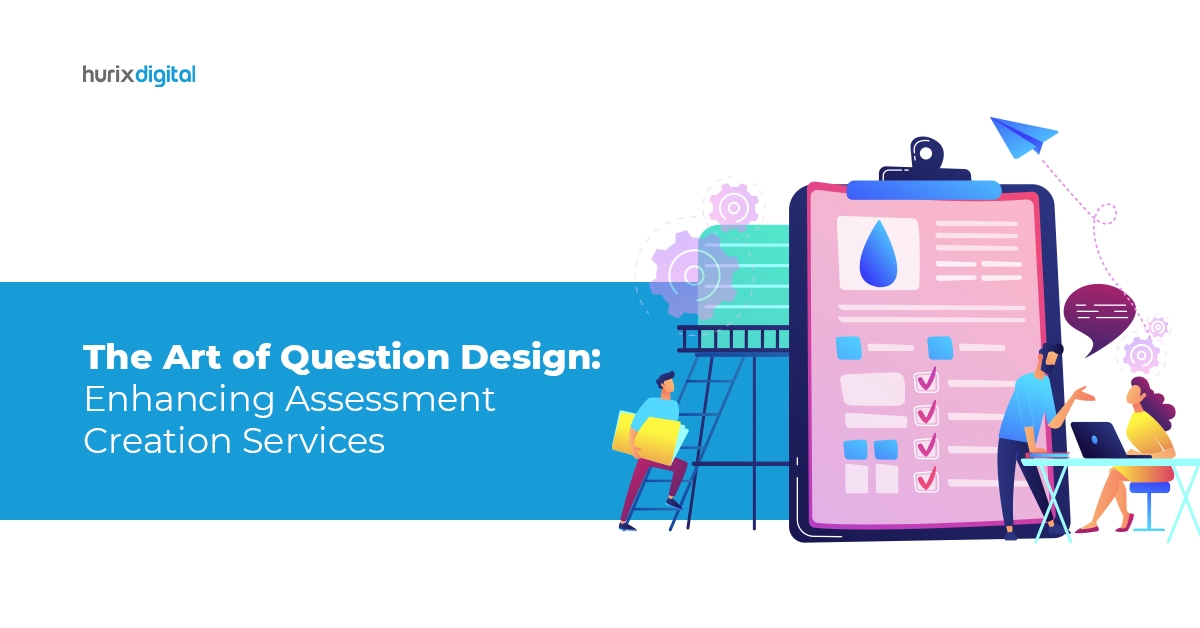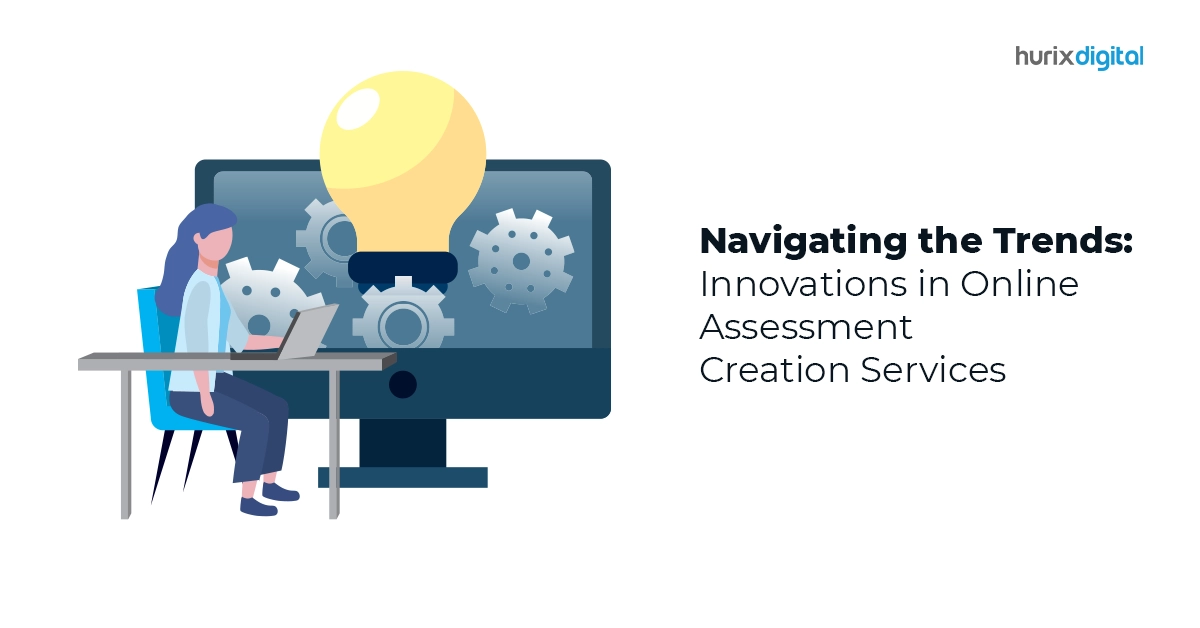Summary
This blog explores strategies such as choosing questions wisely, considering participants, and crafting concise yet comprehensive queries. Advanced techniques like randomization, branching, and text analysis are revealed.
Effective assessments and surveys are integral to providing quality market research and consumer insight services. However, designing high-quality questionnaires that yield meaningful data requires a nuanced understanding of how people process and respond to different questions.
Assessment creation professionals who carefully craft closed questions according to best practices stand to gain valuable customer insights while reducing response biases.
In 2019, a study conducted by the Pew Research Center discovered that when people were given specific options to choose from (forced-choice questions), they gave more accurate responses, in contrast to the select-all-that-apply questions. Therefore, adhering to such tried and tested methods and many others, as listed in this blog, can help you enhance your assessment creation services.
This blog post explores powerful and winning strategies for question design grounded in research on cognitive processes and human behavior.
Table of Contents:
- Choose Your Questions Wisely
- Consider Your Participants
- Consider Question Order and Flow
- Keep it Concise yet Comprehensive
- Activating Assessment Creation with Advanced Question Techniques
- Leverage Technology
- Tips For Crafting Quality Questions
- Conclusion
Choose Your Questions Wisely
The questions asked in a survey, assessment, or interview are arguably the most crucial element in obtaining helpful information from respondents.
As noted by market research professionals, even minor changes in the wording, order, or scale of questions can influence how people interpret and respond to them. Therefore, it is crucial for those designing questionnaires to consciously select closed questions that will elicit the most relevant, unbiased data possible.
A good starting point is to consider open-ended and closed-form questions. While open questions allow for diverse responses, they require more effort from respondents and more work coding answers.
Closed questions, which provide clear, exhaustive response options, are preferred as they are faster and easier for participants. However, the range of choices must still be thoughtfully determined to represent all legitimate possibilities while avoiding overlap between options.
Consider Your Participants
The characteristics of assessment respondents also shape question design best practices. For example, questions suitable for researchers may not align with options preferred by busy professionals or those with less education.
Additionally, cultural sensitivity requires awareness of how variables manifest across diverse populations. Market research professionals designing evaluations for cross-cultural use may find concept-matching techniques valuable to establish measurement equivalence.
This process involves qualitatively exploring target constructs with focus groups from each context. Prominent linguistic, substantive, or contextual differences inform question adaptation to optimize cross-cultural comprehension and validity. For example, simple frequency questions like “Never, Sometimes, Often” may have different implications depending on cultural norms around the expression of extremes.
Validation with multi-group confirmatory factor analysis ensures equivalence in representing the construct across participant characteristics before interpretation and comparison. Regardless of the outcomes intended, considering participant attributes enhances the quality and integrity of the resulting assessment creation data.
Consider Question Order and Flow
Beyond individual question wordings and types, the sequence and flow of questions in an assessment tool require careful planning.
- Randomization is vital so that concepts are presented unbiased and counterbalanced across participants. Additionally, questions should progress logically from general to more specific within each thematic section.
- Opening straightforward questions within common knowledge helps establish rapport and a shared context before delving into more complex topics.
- Demographic or multiple-choice questions are typically left until the conclusion when participants have invested time in responding and are less sensitive to such items.
- Sensitive topics may also cause evaluations to escalate or have floor effects and should generally be addressed after building rapport.
The assessment creation flow should feel natural and conversational, rather than an imposed list of disconnected queries. Embedding clear section separators and progress markers keeps respondents oriented throughout longer surveys.
Overall, carefully crafting an inquiry’s logical flow and order limits potential question-order and context effects on how individuals interpret and respond.
Keep it Concise Yet Comprehensive
Brevity is crucial in Assessment Creation. It maintains participant engagement levels over an extended period. However, response options must still comprehensively represent the domain of interest. Striking this balance, market research professionals draft questionnaires on a small sample and review similar existing tools in the given topic area.
Pretesting and debriefing provide insight into question clarity and interpretations. Issues identified during pretesting allow market research professionals to optimize validity and reliability. Reviewing related measures also ensures new assessment creation tools augment—rather than overlap or conflict with—current research and practice.
Assessors should ask whether response scales can be shortened without sacrificing content coverage or psychometric strength for each closed question. When domains contain many distinct perspectives or options, allowing an “other” write-in avoids forcing respondents while still quantifying the prevalence of tailored responses.
Concise questionnaires maintain participant stamina and thoughtfulness during completions to prevent hasty, random reactions over time.
Also Read: Online Assessment Test: The Ultimate Way To Track Students’ Progress
Activating Assessment Creation with Advanced Question Techniques
While classic closed and open-ended questions form the basis of most questionnaires, advanced question techniques allow us to activate assessment creation to extract deeper insights.
Let’s explore four powerful and winning strategies for market research surveys:
1. Inclusion of “Other”
For closed questions like multiple choice, always provide an “Other” option to capture responses you may not have anticipated. Follow up by asking the respondent to specify their “Other” choice in an open-ended question.
Example: What category would you place our product in?
- Cleaning supplies
- Pet products
- Self-care products
- Other (please specify)
2. Randomisation
Present response options in random order across respondents to account for order bias. This prevents false conclusions from being drawn that the first or last option is most preferred when that order is skewing the data.
3. Branching
Once a respondent chooses a question, you can branch them dynamically to a follow-up question tailored to their response. This makes surveys more engaging and relevant.
Example: “Have you purchased from our company in the past 3 months?” (Yes/No)
If yes, present questions about their recent purchase experience. If no, present questions about why they have yet to purchase.
4. Text Analysis
For open-ended questionnaire data, text analysis examines unstructured qualitative insights to extract common themes, identify sentiment, highlight key topics, and more. This enables richer findings.
Leverage Technology!
Technology affords new opportunities for interactive, engaging assessment creation beyond traditional linear surveys.
For example, concept-sorting digital tools allow respondents to categorize items freely and give a range of choices for conceptual maps. This reveals nuances in how people mentally organize topics that closed responses may miss.
Adaptive testing hones in on participants’ proficiency level by selecting successively easier or more complex items based on previous responses. This improves measurement precision and administration efficiency compared to fixed-form tests.
Simulation-based assessment creation immerses users in realistic scenarios to evaluate complex decision-making and problem-solving skills challenging to capture through passive responding alone.
Tips For Crafting Quality Questions
Let’s explore some best practices for crafting optimal questions.
a) Avoid ambiguity
Be as precise as possible in your wording. Any vagueness can lead respondents to misinterpret the question.
b) Stay neutral
Don’t insert your own opinions or assumptions. This introduces bias, which skews results.
c) Keep it simple
Use simple language that your respondents will easily understand. Avoid technical jargon or slang.
d) Be specific
If asking about behaviors or preferences, provide a specific timeframe. This aspect is often forgotten.
e) Limit double-barreled questions
Avoid asking two questions in one, as a respondent may agree with one part but not the other.
f) Check clarity with pre-testing
Have a small test group take the survey and provide feedback on any unclear questions.
Also Read: Navigating the Trends: Innovations in Online Assessment Creation Services
Conclusion
Thoughtful question crafting according to best practices in design, development, and validation forms the foundation for accurate, meaningful assessment data.
Assessment creation professionals who invest in thoroughly researching their target domain and population can develop evaluation tools yielding novel insights rather than superficial, potentially biased information.
While no single questionnaire will suit all contexts, conscientiously applying principles from cognition, linguistics, and survey methodology enhances the quality and integrity of any assessment system.
Organizations looking to distinguish their evaluation services would do well to emphasize the musical art and the technical science behind robust question design.
Need help designing your next assessment project? Contact the assessment experts at Hurix Digital today for customizable design solutions.







